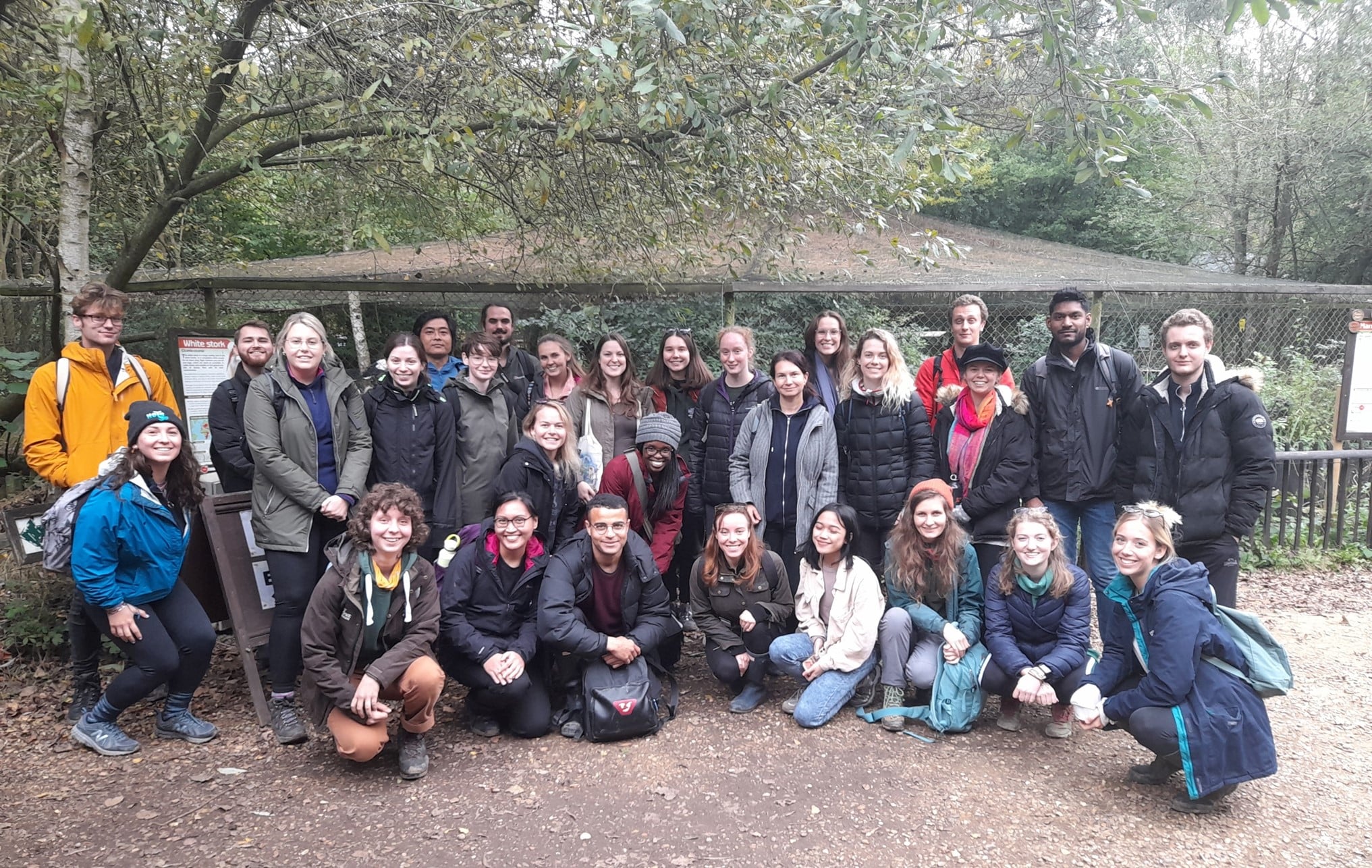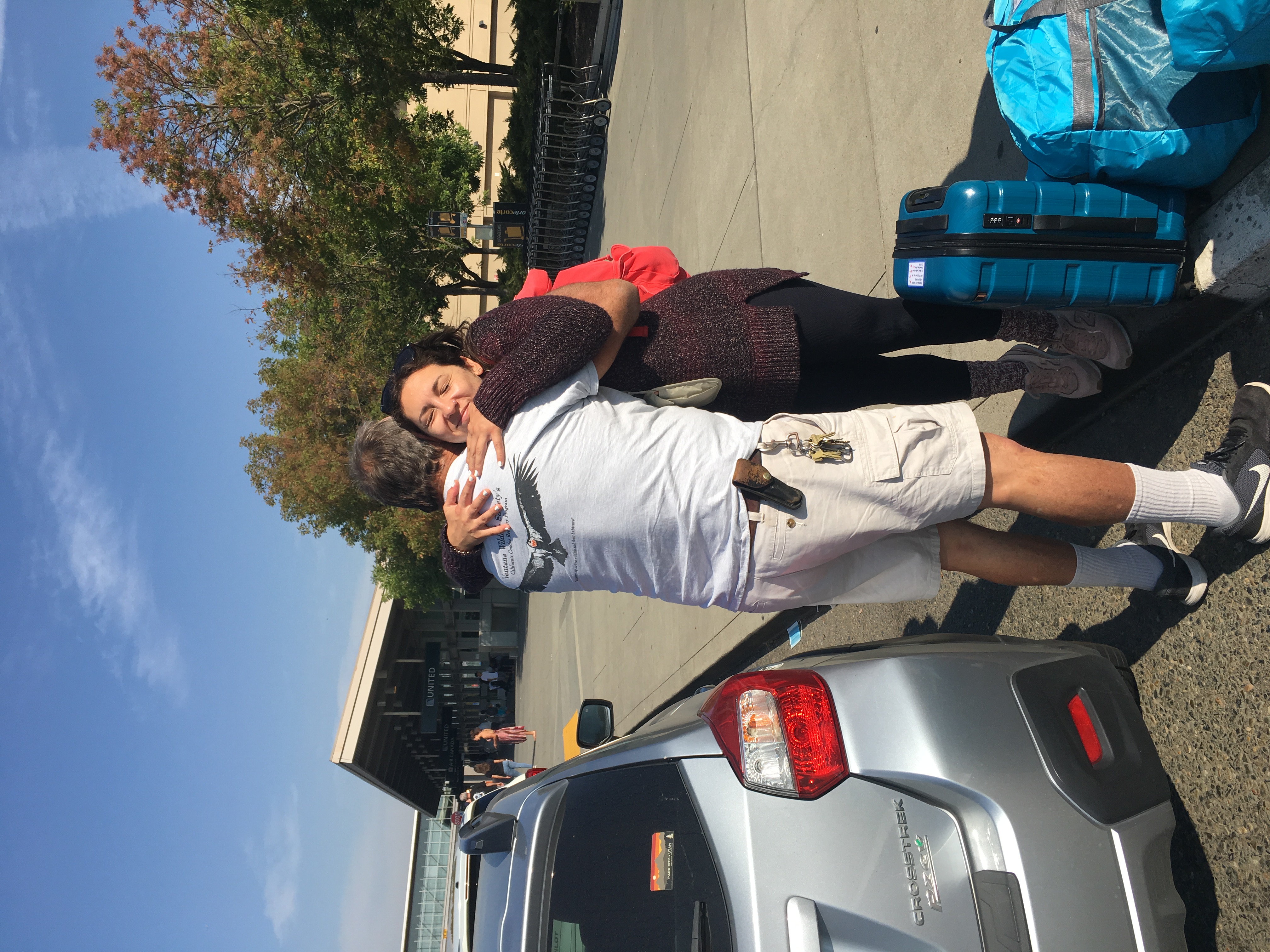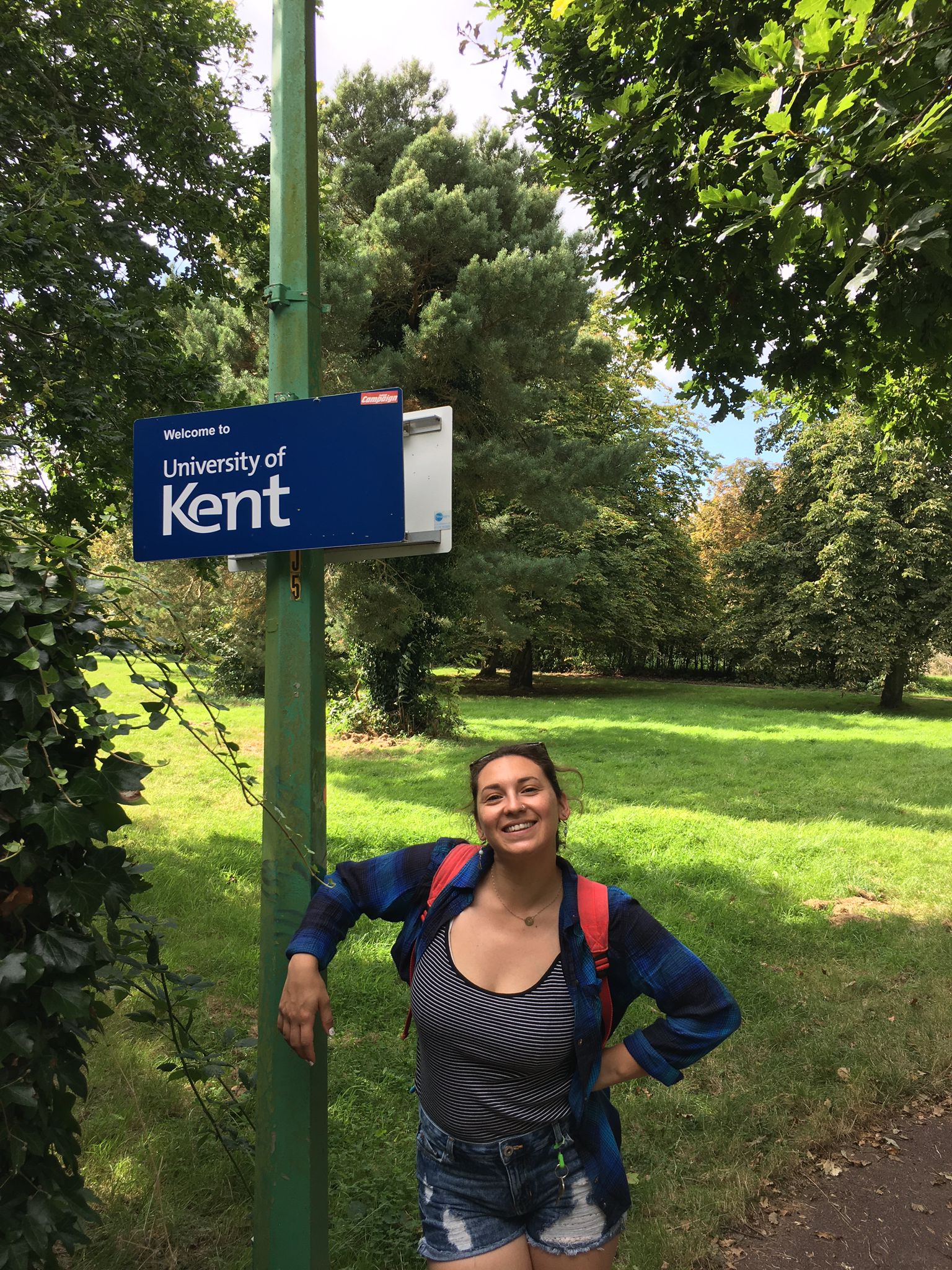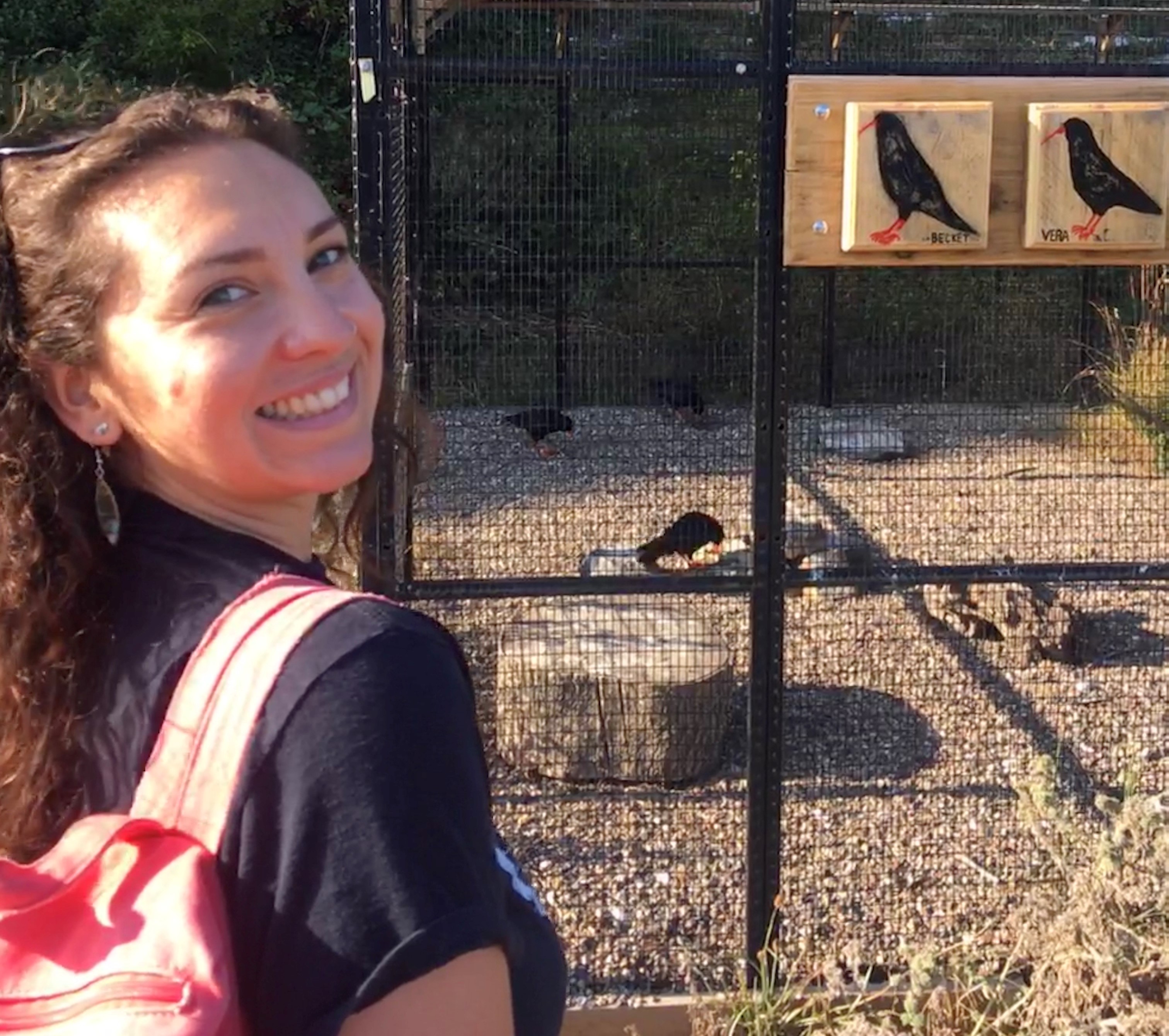Maddy Dufek switched courses to gain a Masters in Conservation Biology. The decision to study abroad took time and deep self-reflection and is a decision she will never regret.
What made you decide to study abroad at the University of Kent?
After my undergraduate degree, I established a comfortable life for myself in my home state of California. But I always dreamed of seeing the world. Eventually leaving the United States stopped being a matter of if but when. Choosing to study abroad, switch from Neurobiology to Conservation, and finding the right university were not decisions I made lightly. I asked myself five key questions during that time:
- What am I passionate about?
- What are my financial constraints?
- How long do I really want to be in school?
- What do I hope to get out of the experience overall – short-term and long-term?
- What other responsibilities in my life do I need to consider?
I saved up, I had limited obligations tying me to California, I always wanted to visit the UK, and still, I would pay less as an international student in the UK than in-state tuition in the US. I applied to four schools offering rigorous programs. I wanted to learn from teachers who were active conservation practitioners and equipped students with knowledge and skills they could carry into reputable conservation jobs. The Conservation Biology MSc at the University of Kent was my top choice. The true selling point for me was the School of Anthropology & Conservation (SAC) and the Durrell Institute of Conservation & Ecology (DICE), a world-renowned assemblage of conservationists at the top of their field, teaching our courses. Their emphasis on interdisciplinarity and scientific collaboration to reconcile the needs of human communities and that of the biodiversity that sustains us all deeply resonated with me. In 2021, DICE and the University of Kent were formally recognized for their Research Excellence Framework in Geography & Environmental studies, surpassing Cambridge and Oxford. This was the academic space where I belonged.

How was it preparing for the move?
I was working full time, so I split my huge to-do list into manageable pieces as soon as I accepted my offer from UKC (about eight months before moving). Give yourself time to handle the logistics of an international move, it’s a whole process. I consulted the international student links on the university website and the UK Government Immigration website to guide me through the moving process. I read blogs and columns written by other international students and travellers to absorb as many tips and tricks as possible. This also gave me a more candid viewpoint of the process. From visa paperwork, to storing belongings you aren’t taking with you, booking flights, etc., don’t risk being rushed by anything. Save yourself the stress and give yourself extra time for delays or anything that could go wrong.
Finally, I downsized my old California life to fit my new one in England, which was surprisingly easy and frankly, a relief. I brought only the essentials using two large duffle bags for clothes, a large and small hard-shell suitcase for the rest (shoes, jewellery, books, other personal items, etc.), plus my backpack for important personal documents. Items like toiletries, bedding, storage supplies, and others I knew I could acquire when I arrived, I left behind in storage or threw away outright.
And don’t forget to spend quality time with friends and family before moving. This was incredibly important for me since I knew I would not be back for a long time.

What did you learn from this experience?
- Don’t Be Afraid to Do Your Own Thing
Coming into my Master’s, I wanted to do school differently than when I was an undergraduate. I decided well before I arrived in Canterbury that I was going to not just survive a rigorous academic program amidst other life challenges – I was going to thrive in it all. I prioritized not just classes and assignments, but plenty of extracurriculars that kept me sane and expanded my learning outside the classroom. I joined the Kent Music Society, the Sustainability Working Group, the SAC Decolonisation Working Group, helped organize the annual UKC BioBlitz, and became a student ambassador teaching secondary school students about Conservation. But I also took time to rest. We can’t be working every second of our lives. Don’t be afraid to create a lifestyle that makes you happy and fulfilled amidst the challenges of school, even if others are doing something entirely different. Getting a Distinction in your course can feel next to impossible otherwise.
- Nothing is Permanent, and That’s Okay
The last year truly tested me – I learned more about life, people, nature, and myself than I ever expected. I poured over assignments, pushed to maintain my mental health, I was sick with COVID-19 resulting in a hospital visit and a setback on my assignments. My family lost our beloved dog Ruby far too early, and around the same time, my father was diagnosed with early-stage oesophageal cancer. And two weeks before handing in my dissertation, I had my heart broken at the end of my almost eight-year-long relationship with my former partner. Nothing is certain. But if you come to know yourself – what you’re passionate about, what you’re capable of, what and who you want in your life – people, circumstances, and experiences will come and go, and you’ll always find a way to carry on.
So, would you recommend studying abroad at the University of Kent?
Absolutely. It’s one of the greatest gifts I gave myself thus far. Beyond the life lessons, I had a fantastic time in my program. The SAC faculty I was privileged enough to learn from, my brilliant cohort-mates and now friends I worked alongside, the incredibly supportive UKC mental health services and the vibrant UKC community that reignited my passions outside of conservation, were all instrumental in my success in school. So, trust your gut. Even if something feels unattainable or unrealistic, listen to your mind, heart, and body to tell you what’s right for you. The person you’re meant to be is out there waiting!

Maddy Dufek is studying Conservation Biology MSc.

